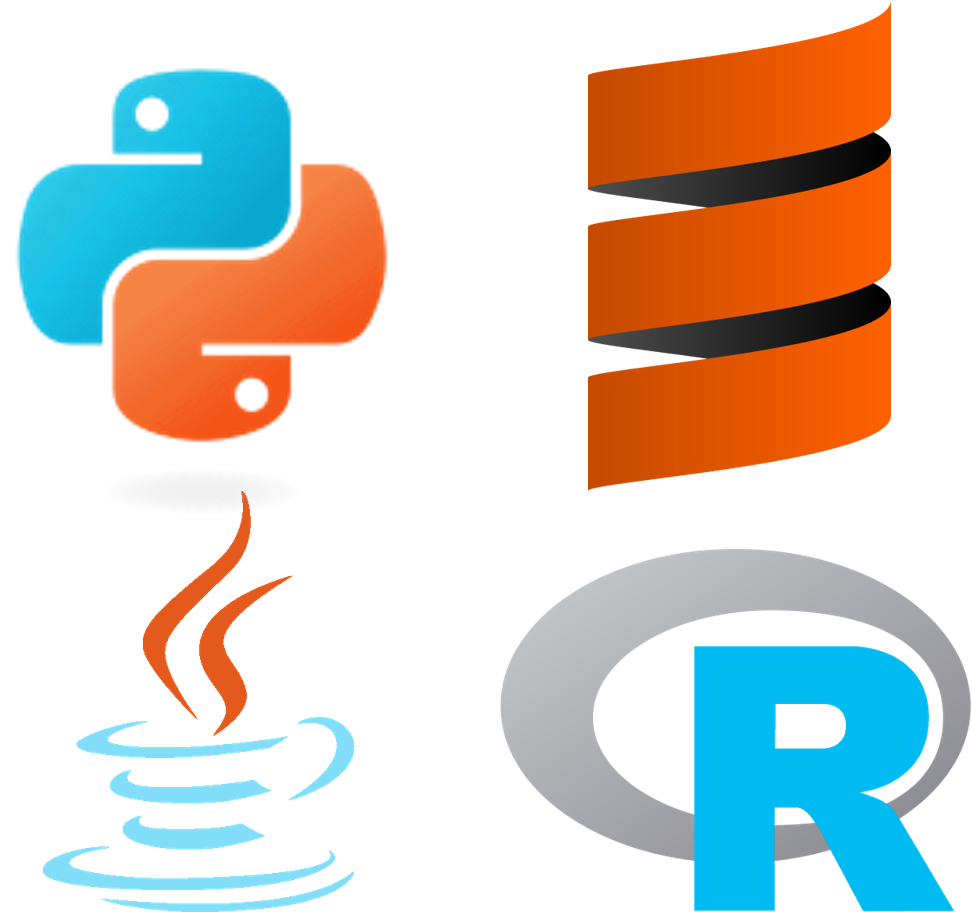SynapseML (previously MMLSpark) is an open source library to simplify the creation of scalable machine learning pipelines. SynapseML builds on Apache Spark and SparkML to enable new kinds of machine learning, analytics, and model deployment workflows. SynapseML adds many deep learning and data science tools to the Spark ecosystem, including seamless integration of Spark Machine Learning pipelines with the Open Neural Network Exchange (ONNX), LightGBM, The Cognitive Services, Vowpal Wabbit, and OpenCV. These tools enable powerful and highly-scalable predictive and analytical models for a variety of datasources.
SynapseML also brings new networking capabilities to the Spark Ecosystem. With the HTTP on Spark project, users can embed any web service into their SparkML models. For production grade deployment, the Spark Serving project enables high throughput, sub-millisecond latency web services, backed by your Spark cluster.
SynapseML requires Scala 2.12, Spark 3.2+, and Python 3.6+. See the API documentation for Scala and for PySpark.
Table of Contents
 |
 |
 |
 |
|---|---|---|---|
| Vowpal Wabbit on Spark | The Cognitive Services for Big Data | LightGBM on Spark | Spark Serving |
| Fast, Sparse, and Effective Text Analytics | Leverage the Microsoft Cognitive Services at Unprecedented Scales in your existing SparkML pipelines | Train Gradient Boosted Machines with LightGBM | Serve any Spark Computation as a Web Service with Sub-Millisecond Latency |
 |
 |
 |
 |
|---|---|---|---|
| HTTP on Spark | ONNX on Spark | Responsible AI | Spark Binding Autogeneration |
| An Integration Between Spark and the HTTP Protocol, enabling Distributed Microservice Orchestration | Distributed and Hardware Accelerated Model Inference on Spark | Understand Opaque-box Models and Measure Dataset Biases | Automatically Generate Spark bindings for PySpark and SparklyR |
 |
 |
 |
|---|---|---|
| Isolation Forest on Spark | CyberML | Conditional KNN |
| Distributed Nonlinear Outlier Detection | Machine Learning Tools for Cyber Security | Scalable KNN Models with Conditional Queries |
For quickstarts, documentation, demos, and examples please see our website.
To try out SynapseML on a Python (or Conda) installation you can get Spark
installed via pip with pip install pyspark. You can then use pyspark as in
the above example, or from python:
import pyspark
spark = pyspark.sql.SparkSession.builder.appName("MyApp") \
.config("spark.jars.packages", "com.microsoft.azure:synapseml_2.12:0.9.5") \
.getOrCreate()
import synapse.mlIf you are building a Spark application in Scala, add the following lines to
your build.sbt:
libraryDependencies += "com.microsoft.azure" % "synapseml_2.12" % "0.9.5"
SynapseML can be conveniently installed on existing Spark clusters via the
--packages option, examples:
spark-shell --packages com.microsoft.azure:synapseml_2.12:0.9.5
pyspark --packages com.microsoft.azure:synapseml_2.12:0.9.5
spark-submit --packages com.microsoft.azure:synapseml_2.12:0.9.5 MyApp.jarThis can be used in other Spark contexts too. For example, you can use SynapseML
in AZTK by adding it to the
.aztk/spark-defaults.conf
file.
To install SynapseML on the Databricks cloud, create a new library from Maven coordinates in your workspace.
For the coordinates use: com.microsoft.azure:synapseml_2.12:0.9.5
with the resolver: https://mmlspark.azureedge.net/maven. Ensure this library is
attached to your target cluster(s).
Finally, ensure that your Spark cluster has at least Spark 3.2 and Scala 2.12. If you encounter Netty dependency issues please use DBR 10.1.
You can use SynapseML in both your Scala and PySpark notebooks. To get started with our example notebooks import the following databricks archive:
https://mmlspark.blob.core.windows.net/dbcs/SynapseMLExamplesv0.9.5.dbc
To install SynapseML from within a Jupyter notebook served by Apache Livy the following configure magic can be used. You will need to start a new session after this configure cell is executed.
Excluding certain packages from the library may be necessary due to current issues with Livy 0.5.
%%configure -f
{
"name": "synapseml",
"conf": {
"spark.jars.packages": "com.microsoft.azure:synapseml_2.12:0.9.5",
"spark.jars.excludes": "org.scala-lang:scala-reflect,org.apache.spark:spark-tags_2.12,org.scalactic:scalactic_2.12,org.scalatest:scalatest_2.12"
}
}
In Azure Synapse, "spark.yarn.user.classpath.first" should be set to "true" to override the existing SynapseML packages. Note that Azure Synapse is currently on spark 3.1, hence SynapseML 0.9.4 should be used instead of latest 0.9.5 release.
%%configure -f
{
"name": "synapseml",
"conf": {
"spark.jars.packages": "com.microsoft.azure:synapseml_2.12:0.9.4",
"spark.jars.excludes": "org.scala-lang:scala-reflect,org.apache.spark:spark-tags_2.12,org.scalactic:scalactic_2.12,org.scalatest:scalatest_2.12",
"spark.yarn.user.classpath.first": "true"
}
}
The easiest way to evaluate SynapseML is via our pre-built Docker container. To do so, run the following command:
docker run -it -p 8888:8888 -e ACCEPT_EULA=yes mcr.microsoft.com/mmlspark/releaseNavigate to http://localhost:8888/ in your web browser to run the sample notebooks. See the documentation for more on Docker use.
To read the EULA for using the docker image, run \
docker run -it -p 8888:8888 mcr.microsoft.com/mmlspark/release eula
SynapseML can be used to train deep learning models on GPU nodes from a Spark application. See the instructions for setting up an Azure GPU VM.
SynapseML has recently transitioned to a new build infrastructure. For detailed developer docs please see the Developer Readme
If you are an existing synapsemldeveloper, you will need to reconfigure your development setup. We now support platform independent development and better integrate with intellij and SBT. If you encounter issues please reach out to our support email!
To try out SynapseML using the R autogenerated wrappers see our instructions. Note: This feature is still under development and some necessary custom wrappers may be missing.
-
Visit our website.
-
Watch our keynote demos at the Spark+AI Summit 2019, the Spark+AI European Summit 2018, and the Spark+AI Summit 2018.
-
See how SynapseML is used to help endangered species.
-
Explore generative adversarial artwork in our collaboration with The MET and MIT.
-
Explore our collaboration with Apache Spark on image analysis.
This project has adopted the Microsoft Open Source Code of Conduct. For more information see the Code of Conduct FAQ or contact [email protected] with any additional questions or comments.
See CONTRIBUTING.md for contribution guidelines.
To give feedback and/or report an issue, open a GitHub Issue.
Apache®, Apache Spark, and Spark® are either registered trademarks or trademarks of the Apache Software Foundation in the United States and/or other countries.




